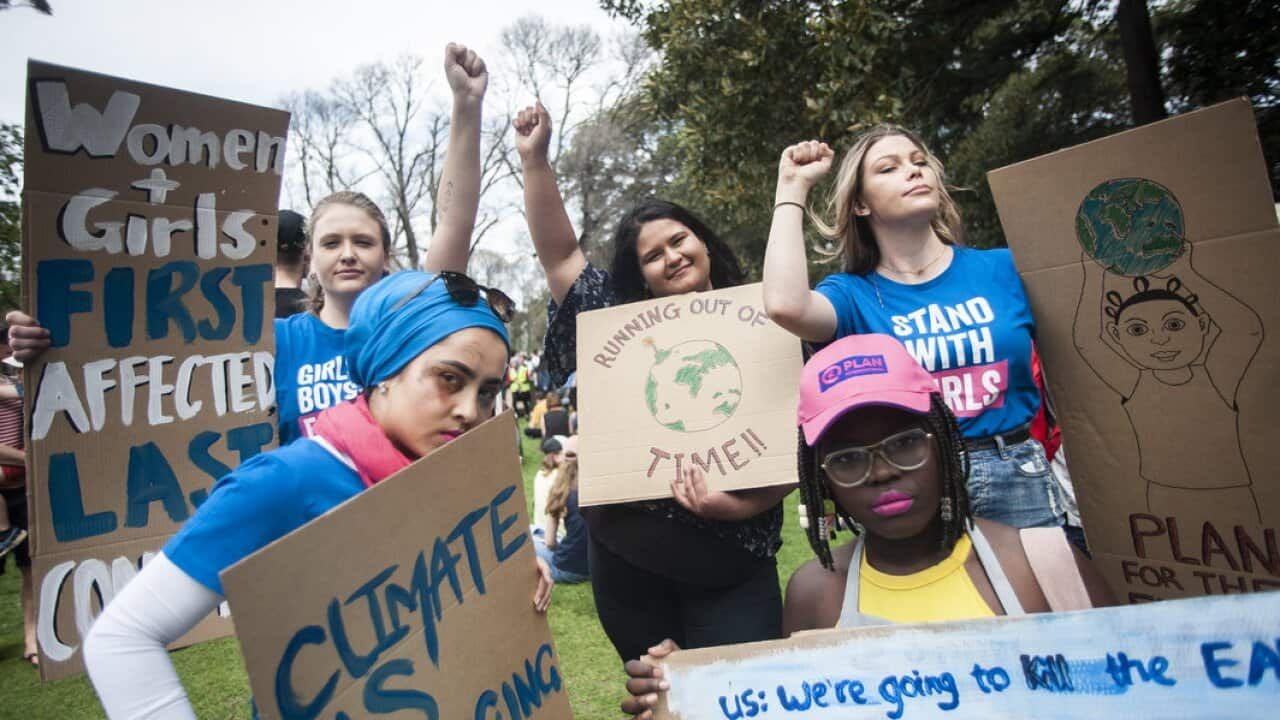OPINION
Fighting gender based discrimination has always been a passion of mine. I am always the first to question people about why they are more concerned about what their daughters are wearing, than what their sons understood about consent.
I am the first to ask “what about women?” in my Australian politics class, and the first to reflect on the portrayal of female characters in Shakespeare’s classics in my Literature class. For as long as I can remember, I’ve been passionate about the rights of women and girls.
But it wasn’t until recently that I became aware of perhaps the greatest issue facing young women and girls all over the world: climate change. There isn’t a day that goes by that I’m thinking about the catastrophe that lies ahead for women and girls. Most of us don’t see climate change as a gender issue, and it’s true that the complex links between gender and climate change are hardly mentioned in the debate.
Most of us don’t see climate change as a gender issue, and it’s true that the complex links between gender and climate change are hardly mentioned in the debate.

Youth activist Sam Devany. Source: Plan International Australia
It wasn’t until earlier this year, when I became involved with Plan International Australia, a humanitarian organisation focused on equality for girls and young women, that I began to understand what is at stake for women and girls when it came to climate change inaction.
By now we all know the science is as clear as it can be. If we don’t act now to reduce emissions, to change the system, young people will not have any future, let alone a “bright” one.
This is especially true for young women and girls. Women and girls will be disproportionately affected by climate change. Young women of colour, Indigenous women and our Pacific Island neighbours are already feeling the effects of climate change in their communities all over the world.
Australian girls and young women (aged 12 to 25) see climate change as the single most pressing social issue facing the world and their personal futures by far
According to , the impact of climate change is in the top 5 causes of death for children under 5 in the world; and with impacts food security, . Plus, after an extreme weather event, , and of abuse, violence and exploitation.
Not only are they the first affected, but they are the last consulted. in decision making processes that directly affect their future. This is why I am fighting for climate justice. And I’m not alone.
According to Plan International Australia’s new , launched today for International Day of the Girl, Australian girls and young women (aged 12 to 25) see climate change as the single most pressing social issue facing the world and their personal futures by far. But they also think girls have a really important role to play in leading the charge to address climate change.
I am passionate about climate change because the brunt of climate change inaction will fall on my shoulders. Without including young women and girls into the conversation, the real consequences of climate change inaction, particularly those from already marginalised groups, will remain invisible.
Sam Devany is a youth activist with Plan International Australia.



